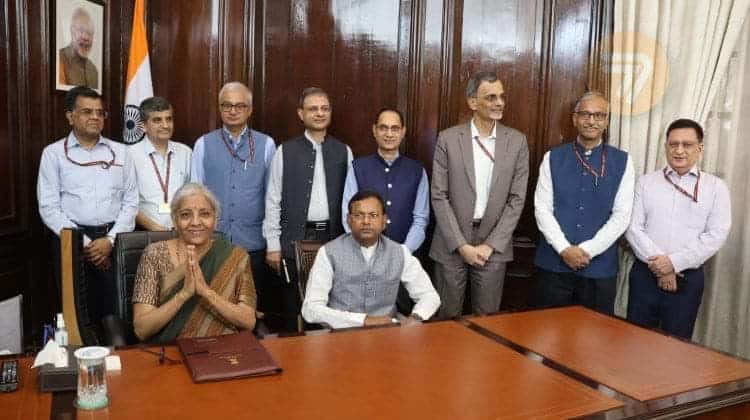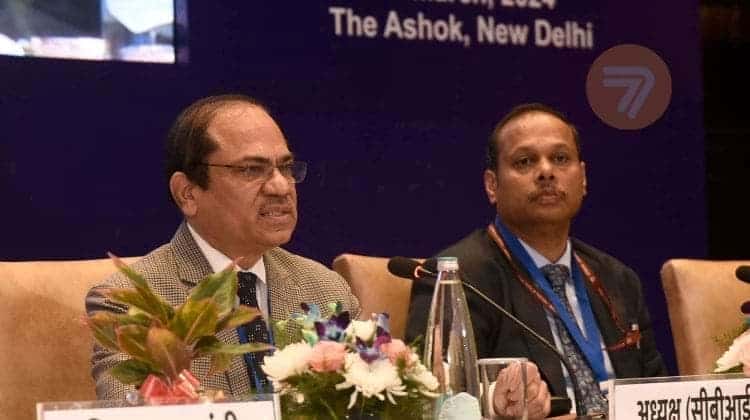New Government, New GST Council, New Hopes for Gaming
21 Jun 2024
The Lok Sabha elections temporarily halted significant policy-making in India. This included the urgent need for regulatory clarity in the rapidly growing online money gaming industry.
On October 1 of last year, the sector faced a substantial increase in the effective GST burden. The rate was raised to 28% on the total value of entry deposits for casinos, horse racing, lottery, and all online money games, regardless of whether they were skill-based or chance-based.
Fearing irreparable market share losses, most businesses chose not to pass this burden onto customers. Survival became dependent on strong cash reserves and creative strategies to maintain margins in this new landscape.
While companies struggled in this challenging environment, GST enforcement authorities issued 71 show-cause notices to the industry. These notices demanded a total of ₹1,12,332 crore ($13.5 billion) in taxes. Plus penalties and interest, for the period before October 2023.
Now, the Narendra Modi 3.0 cabinet has intervened. The 53rd GST Council Meeting is scheduled for Saturday, June 22. The 15th of July has been set as a tentative date for the litigation concerning the alleged industry-wide tax evasion.
The Egregious Retrospective Tax Demand Might get Written off
Good news emerged when a proposal by the Law Committee to amend the Central GST Act (CGST Act) was added to the agenda of the upcoming 53rd GST Council Meeting. This amendment has the potential to resolve the “Retrospective Taxation Crisis in Indian Online Gaming” quickly.
“The Law Committee recommended that a provision may be incorporated in GST laws empowering the central and state governments to regularize, based on the recommendations of the GST Council, non–levy or short levy of GST or Compensation Cess where it is found that such non-levy or short levy was a result of general practice in the trade or a section of trade,” the Law Committee proposed.
If the GST Council accepts the amendment and Parliament adds a new Section 11A to the CGST Act, there will be no refunds for overpaid amounts. However, this change would allow government officials across India to write off tax demands that the industry cannot pay. These demands exceed the industry’s market cap multiple times.
“The retrospective demands for GST have decreased investor confidence, ease of business, and the flow of foreign direct investment into the country,” explained John Joseph. He is the former Chairman of the Central Board of Indirect Taxes and Customs (CBIC). He is also a strategic adviser at the risk management consultancy DeepStrat.
A consensus between the executive and legislative powers could resolve the retrospective issues facing the industry. This could happen months before the judiciary delivers a solution. Parliament’s next session starts on June 24, right after the 53rd GST Council. It will focus on budget discussions and the Finance Bill.
A Welcome Relief, but Not Nearly Enough
However, the eventual end of the “Retrospective Taxation Crisis” will be a massive relief for companies and their CFOs. Yet, it is unlikely to clear the doom hanging over the homegrown online gaming sector caused by the October 2023 hike in GST.

“The gaming industry is facing unprecedented challenges. Companies are struggling to retain gamers, leading to widespread consolidation and pushing startups out of the ecosystem. Many startups have already shut down, laid off hundreds of employees, and are grappling with stagnant revenues,” WinZO Co-Founder Saumya Singh Rathore described.
A released report by Ernst & Young (EY) and the US-India Strategic Partnership Forum (USISPF) provides details.
The report highlights that about a third of gaming businesses now pay between 50% and 100% of their total revenues in GST dues. A significant increase from an average of 15.25% before October 1, 2023.
For many startups, the new GST burden even exceeds their total revenues, leading them to run at a considerable loss.
“Over half of the sector’s enterprises are now facing stagnant or shrinking revenues,” the report states. It notes that 25% of companies have experienced growth declines of up to 50%. This is a stark contrast to the previous growth rates of 100-200 percent.
Foreign Direct Investment (FDI) has come to a complete halt after the GST hike. It totaled $2.6 billion (₹21.730 crore) between 2019 and 2023.
Among 12 surveyed Indian gaming businesses, four reported a freeze on hiring new staff. Four others laid off up to half their workforce. One company parted ways with more than 50% of its talent, and another company shut down.
“For a sector which has created 100,000 jobs and was expected to create three times more jobs in the coming years, such job erosion is an alarming concern,” the EY report concludes.
Industry Hopes for a Roll Back, not Likely according to Gov’t Sources
After a gap of more than eight months since the 52nd Meeting of the GST Council on October 7, 2023, the industry has eagerly awaited the upcoming forum. This meeting will bring together the Central and State Ministers of Finance this Saturday.
Rajat Bose, Partner at Shardul Amarchand Mangaldas & Co, commented, “(The) upcoming GST Council meeting, being the first of the new government, has a full plate of agenda items. There is a need to address key industry issues like the taxation of online gaming and the promised review of the valuation rules introduced in October 2023.”
However, an anonymous source mentioned that the GST Council “is likely to have reservations on any review. It will continue with the ongoing policy of 28% GST on actionable claims.” This is due to the sixfold surge in tax revenues from online gaming.
Another governmental source added, “The council will not address the comprehensive review of online gaming at the upcoming meeting. […] There is no perceived need for the review as the industry has adjusted well to the higher tax implemented from October 1, 2023. Thus, the review is not part of the agenda in the upcoming council meeting on June 22.”

Nevertheless, the news about the scheduling of the 53rd GST Council meeting brought a 24% surge in Delta Corp Ltd’s shares last week. The stock rose from ₹110 to ₹136, driven by market expectations of potential tax relief.
Avinash Gorakshkar, Head of Research at Profitmart Securities, explained, “There is a strong market buzz that the Indian Finance Minister, Nirmala Sitharaman, may announce a reduction in GST in the upcoming interim budget. This speculation has led the market to anticipate additional income in the company’s balance sheet in the upcoming quarterly results.”
Gorakshkar added, “If the Union Finance Minister in the Modi 3.0 government indeed announces a GST reduction in her budget speech, we can expect a surge in buying of Delta Corp shares post-budget presentation.”



